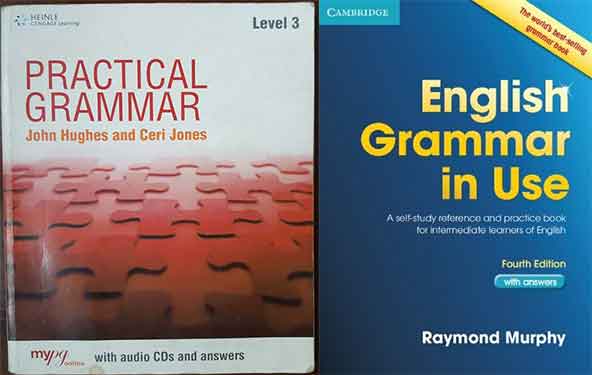With the world increasingly hectic, we are often unable to dedicate our time and money to language courses.
Whether it's because a course is too expensive or too far away, or maybe you can never fit something into a fixed schedule in your busy weekly routine... Whatever the reason, having a schedule for studying English can be a good step to achieving fluency in the language.
If you already have English classes but want to improve studying outside of them, then a schedule will also serve you very well.

With a schedule, you will have the freedom to fit your studies into your routine without major problems, being able to study when, where and for as long as you want. Obviously, the more time you dedicate to studies, the greater results you will see.
If you are interested in starting with a ready-made schedule for studying English or are creating your own, this article will be perfect for you.
In it, I will give tips and what you should look out for when studying the language alone, as well as a ready-mae schedule and tips to create your own schedules according to your routine and needs.
What to keep in mind when studying English alone?
Know how much time you have to study and organise it well
Before choosing any study schedule or even creating your own, you should know exactly how your routine works and how much time you can dedicate to English. You may decide that you will set aside two hours a day to study the language, but this may not work in practice.
The tip is then to analyse how your weekly routine is structured, from the beginning of the day on Monday to the end of the night on Sunday. By knowing exactly how much time you can dedicate to your studies, everything will be easier and you will be able to follow your schedule without great difficulty.
Have a clear goal
Anything in our lives that takes a long time, lots and lots of dedication and resilience to complete needs to have a purpose.
Without a precise and clear objective to use as fuel on our journey, we end up losing our motivation along the way and, as a result, not completing what we dreamed of.
In addition to losing dedication, we will be making progress without progress, because without a destination, how do we know that we are managing to move forward with our efforts?
If your goal is to learn English for your job you can read an article on the importance of English in the job market, or then click here and learn more about technical English, and how to put your English course on your CV here.
Break your goal into smaller pieces
With your goal already in mind, break it down into achievable chunks.
For example, if your goal is to study at a college in California and you need to have an international certificate like IELTS or TOEFL. You can then break it down into smaller parts, such as: knowing how to read an entire university textbook or being able to get the required score in an exam in just 6 months.
If you want to improve your English you may be interested in our online video course for sale on Udemy for €29.99/69.99R$: "Eliminate the Mistakes People Who Speak Portuguese Make in English". 4 hours of video exclusively for people who speak Portuguese. You can read more about it and watch free videos here.
Dividing your final goal into smaller pieces with a specific time to reach can be extremely important in your study journey.
Keep track of your progress
Once you have a final destination broken down into small steps, the next step is to keep track of how your progress is going.
If there is a difficult task that you finally manage to do, for example understanding 90% of a video in English when you watch it for the first time, or reading a long text without having to constantly look for the translation of the words, you can note what you have learned to remember and to maintain your dedication.
You can also write down what difficulties you are encountering at this stage, and it will be good to remind yourself when you manage to overcome this obstacle in the future.
What is a study schedule for English and what is it sued for?
A schedule serves as a guide so you don't get lost when studying a subject, helping you through your journey to learn English on your own.
From Monday to Sunday, you will have specific tasks already created so that, when you sit at the table and open your notebooks, you know exactly what topics you will cover that day.
When well structured, the schedule will guide you and won't let you get lost during your studies, so that you advance more and more in your learning. With it, you won't waste time trying to choose what you're going to learn that day, and you can get down to business quickly.
How to Create a Schedule to Study English
If you are interested in creating your own schedule to study English on your own instead of following a ready-made formula, you need to know a few things first. Like:
Pay more attention to your difficulties:
Let's assume your writing isn't as good as you'd like it to be, so try to make more room for this activity when setting up your schedule. Focus on having more activities that involve improving what you are finding difficult to learn and/or improve.This step will change constantly, because when you cross a barrier, you will find a different one to overcome. Because of this, the most studied topics within your timeline will change frequently.At this stage, be aware of your difficulties and work on them to overcome them.
Divide the subjects out evenly:
When you are time-blocking the topics you will be studying, always assess whether you are maintaining a balance in what you are learning. For example, you may find that you did a lot of grammar study that week, but almost none of vocabulary.Analyse how much weight you are giving to each topic, and try as much as possible to balance the subjects you will study so that you don't end up being very good at one, but terrible at another.
Don't avoid what you don't like:
You may even hate having to remember grammar rules or read English texts, but if you avoid what you don't like, you'll never learn and consequently not advance in your journey to gain fluency in English.
If grammar isn't your strong point, you can read our review of 2 grammar books here.

I believe that using strategies instead of lists of rules is a more effective way of learning grammar. In my video course on sale on Udemy for €29.99/69.99R$ "Eliminate the Mistakes that Portuguese Speakers Make in English".
In it, I use strategies to help Portuguese speakers with the problem areas they have in English grammar. There are 4 hours of video exclusively for people that speak Portuguese. You can read more about it and watch free videos here.
Remember to improve your vocabulary:
Studying on our own, many times along the way we lose our initial motivation and end up giving up studying what we liked so much before. When you feel that frustration is taking over but you still don't want to give up your studies, opt for something lighter, like expanding your vocabulary.
Use flashcards, apps, websites or whatever you think is best. Review the words you already know, fix in your mind the ones you always forget the meaning of, and try to learn new words.
Set aside a day, for example, to learn important vocabulary about cooking, another day for vocabulary used in universities, another day for those most common in a work environment, and so on.
When you are feeling discouraged about continuing to study English, this simple temporary change will bring you immense benefits! Once you're motivated again, go back to your usual schedule.
Timeline for Learning English on Your Own
By following your schedule below with dedication, you will be able to achieve fluency in English without major difficulties. Depending on what you've completed in your studies or how your daily routine is going, you may be able to adapt this schedule to fit your day-to-day.
Here is an example schedule:
Monday: Practice Listening
Dedicate the first day of the week to start strengthening your listening, which is so important in everyday life among the natives.
Tuesday: Practice Reading
Like to read? So this is your opportunity to learn a new language while reading your favourite texts. At this stage, you can study books, poems, internet articles, magazines, and more.
Look for words that you don't know or can't fix the meaning in your head, write them in your notebook, look for their meanings and create your own sentences with these words. Here are 10 great tips you need to remember when reading in English.
Wednesday: Grammar Time
It's no use running away, one day you'll have to face it. A good tip is to always look for the most common topics and study them.
Thursday: Practice Writing
Why not combine yesterday's activities with today's? If you studied an excerpt from a video, a movie or a series, try to understand what is being said (without the help of subtitles!) and rewrite them on paper.
After that, always check that what you understood from what was said was correct.
Saturday and Sunday: Learn While Having Fun
Weekends are time to rest from the long week you've had, but why not mix it up with a light and fun study too?
Lie back on the couch and pop on that new Netflix movie or series you've been looking forward to watching for a long time, or read the book that has been sitting on your shelf gathering dust.
As long as it involves the English language, the fun is free!
Tips for Keeping Up with Your Daily Studies
Have a Journal / Diary
Keeping a journal or diary can have positive effects on your studies. Write down everything you would normally write in your own journal or diary, but in English. It could be about your everyday life, a subject you're having difficulty with, the schedule for next month etc.
The goal here is to become familiar with writing in English and, as a result, improving your writing.
Have a friend who speaks English
Having regular contact with native speakers of the language is of great help to your studies, as it not only forces you speak English, it also gives you the option of getting real feedback in real time.There are several forums on the internet for people who want to teach their languages to others, as a language exchange.
Look for apps, websites, and groups that offer this help. But be careful, and always remember to check that both the site and the people are trustworthy.
You can read how to improve your English conversation on a article coming soon.
Change the language of your devices
A simple but very important tip is to change the language to English on your mobile phone, computers, apps, software, etc. While it may seem silly and perhaps confusing at first, you'll soon get used to the new language and get a lot of words fixed in your vocabulary.
Watch, listen and read in English
Following your study schedule, start increasing English in your day-to-day life in a light and fun way. It can start with a series in English, a book you've read a thousand times but this time in English, or an entire playlist of songs in the language etc.
And you, what do you do to add more learning to your study schedule? Leave your tips here in the comments!
